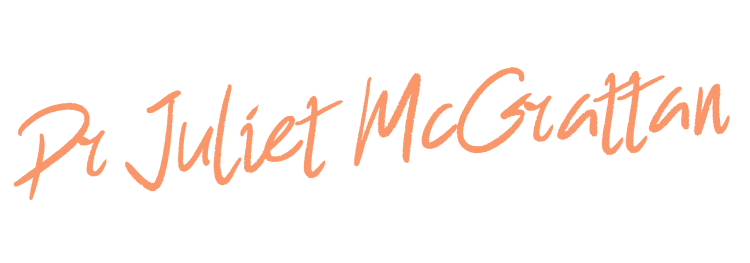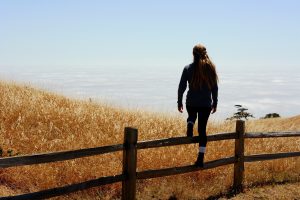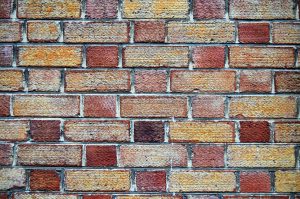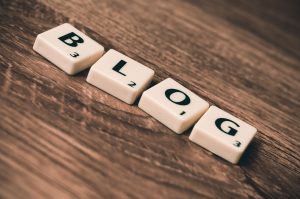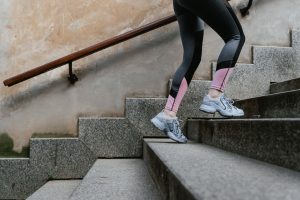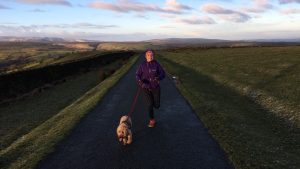There are so many symptoms of the menopause, the list is overwhelming. Most just come and go as they please but there are some which can be triggered by our behaviours. What are the common triggers for menopause symptoms? What can you do to reduce menopause symptoms? Let’s explore menopause triggers and how these affect us as we try to run through the menopause.
One of the frustrating things about the menopause is a lack of control. You might not know what kind of day it’s going to be until you wake up. Are you going to be full of anxiety the moment your eyes open? Perhaps all is going perfectly and then, wham, a hot flush right out of nowhere! The menopause is certainly a roller coaster ride. Hormones don’t reduce in a nice gradual, linear, fashion, nope, they’re up and down like The Big One at Blackpool Pleasure Beach!
As a runner, this unpredictability of how you feel makes consistent training really hard. Some days are great running days, others are a disaster. This can be a challenge to cope with, especially if you’re trying to improve your fitness or are training for an event.
Running and HRT
Whether or not you’re using HRT, regular exercise like running is hugely important for managing the menopause and setting yourself up for a healthy future. And even if you do take HRT, there’s no guarantee that all your symptoms will melt away and you’ll be springing out of bed and into your trainers. The challenge to reduce symptoms and keep running is real for all of us.
Symptom triggers
It’s important to control what we can. There are menopause symptoms that have triggers in some women, on some days. This is a very individual thing and none of us are exactly the same, but there are some things that we can look out for, avoid or just take note of. For example, if we know that a certain activity is likely to bring on a hot flush then we can decide in that moment whether we can cope with that risk.
Here are what I class as the four most common triggers. I’ve linked them to their potential symptoms and added some tips and advice for how to minimise their impact. I’m not going to pretend this will remove them completely but you might see some significant effect, or at least enough impact to help you to feel able to run, even if that’s not at your best.
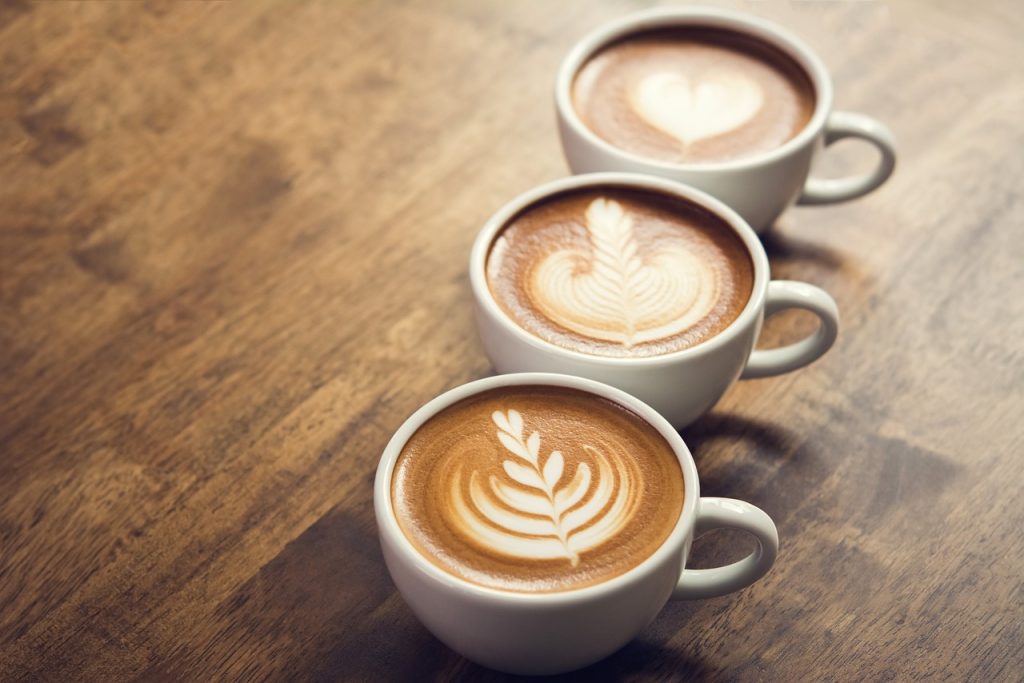
Caffeine
Potential symptoms – anxiety, palpitations, indigestion, sleep disturbance, bladder symptoms.
Caffeine is a stimulant known to cause numerous side effects, some of which can be helpful such as increased focus and concentration. Many women become less tolerant of caffeine during the perimenopause. There’s very mixed research results as to whether caffeine directly affects hot flushes and night sweats, there may be an association but the research is not of high enough quality and quantity to be certain. Some women also report they seem to lose the beneficial effects of caffeine too.
Tips to address this:
- Reduce the amount of tea, coffee and other caffeinated drinks such as cola.
- Look out for caffeine in your endurance energy gels.
- Switch to decaffeinated options, there are some great brands out there now.
- Expect some symptoms such as craving and headache for a few days if you’ve been a high caffeine consumer.
- Experiment with when you can drink caffeine, for example, you might be fine with one cup in the morning, for others this will trigger anxiety symptoms.
- The half-life of caffeine is five hours on average but it can be up to nine and a half hours. For most of us, having caffeine in the afternoon can affect our sleep.

Alcohol
Potential symptoms – low mood, anxiety, night sweats, hot flushes, bladder symptoms.
Where we previously might have felt little effect from a few glasses of wine, suddenly it can make us feel terrible, shortly after drinking and over the next day or two as well. In short, our alcohol tolerance reduces. This is partly due to a reduction in the liver enzymes that break down alcohol, this can make us much more vulnerable to all the ill effects of alcohol. Our bodies are changing so it’s well worth making some changes to our lifestyle too.
Tips to address this:
- Take note of what types of alcohol and how much triggers your symptoms.
- Use the above info to determine how much and what you drink.
- Explore non-alcoholic beers, wine and spirits.
- Find alternative drinks that feel like a treat; here are a couple of my current favourites: A gin glass with ice, raspberries, pink grapefruit squash and sparkling water. A ginger or passion fruit Kombucha.
- Explore whether you are using alcohol to help you cope with stress (see below) and look for better coping mechanisms.
- Notice how alcohol affects your running motivation and performance.
- Get expert help if you feel you are drinking too much and can’t seem to cut down.
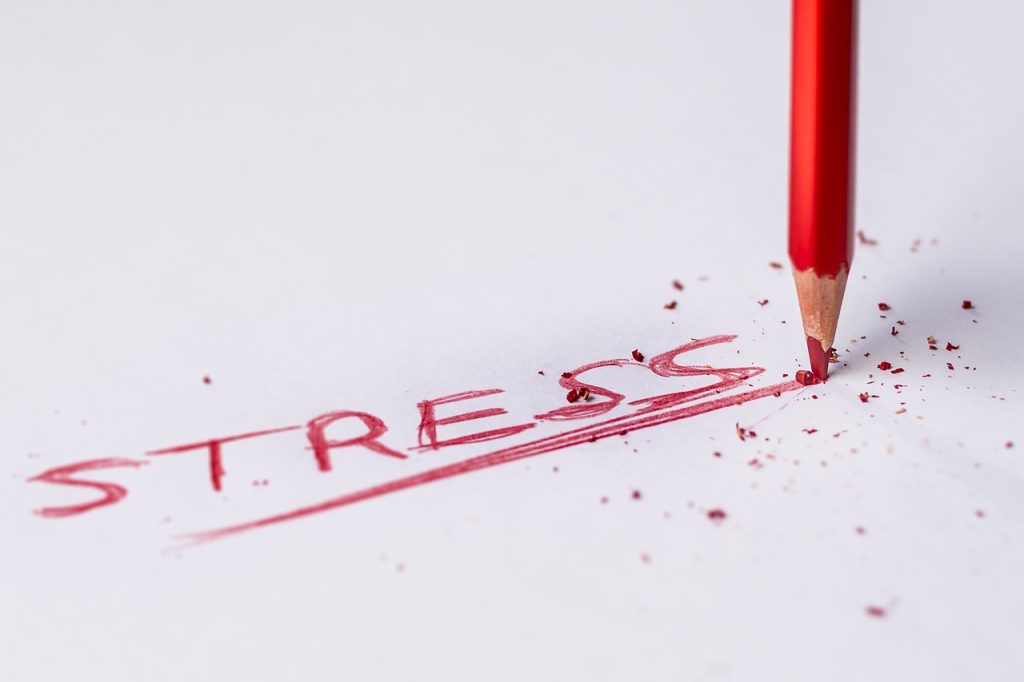
Stress
Potential symptoms – hot flushes, night sweats, sleep disturbance, palpitations, fatigue, poor memory.
There are studies that show women who experience high levels of stress have worse menopause symptoms. This is particularly true of the vasomotor symptoms which include hot flushes and night sweats. It’s ironic and a bit of a vicious circle because menopause symptoms can be one of the things making us stressed! Of course it’s not possible to just switch off the stress that life, work and families create but we can try to minimise it and look after ourselves.
Tips to address this:
- Look at our mind-set and how we perceive what’s going on around us. Can we be more accepting of what we can’t control?
- Make time to give our minds a break. This could be meditation, getting lost in a film or book or something else that distracts and absorbs us.
- Exercise regularly. Sometimes easier said than done but exercise has been shown to be very effective at reducing stress levels. If you don’t feel able to or can’t run, then a relaxing yoga class or a brisk walk will help too.
- Delegate. This is hard for control freaks (like me) but ask others to do things and let go of the fact they might not do them exactly as you would have done. Done is better than perfect.
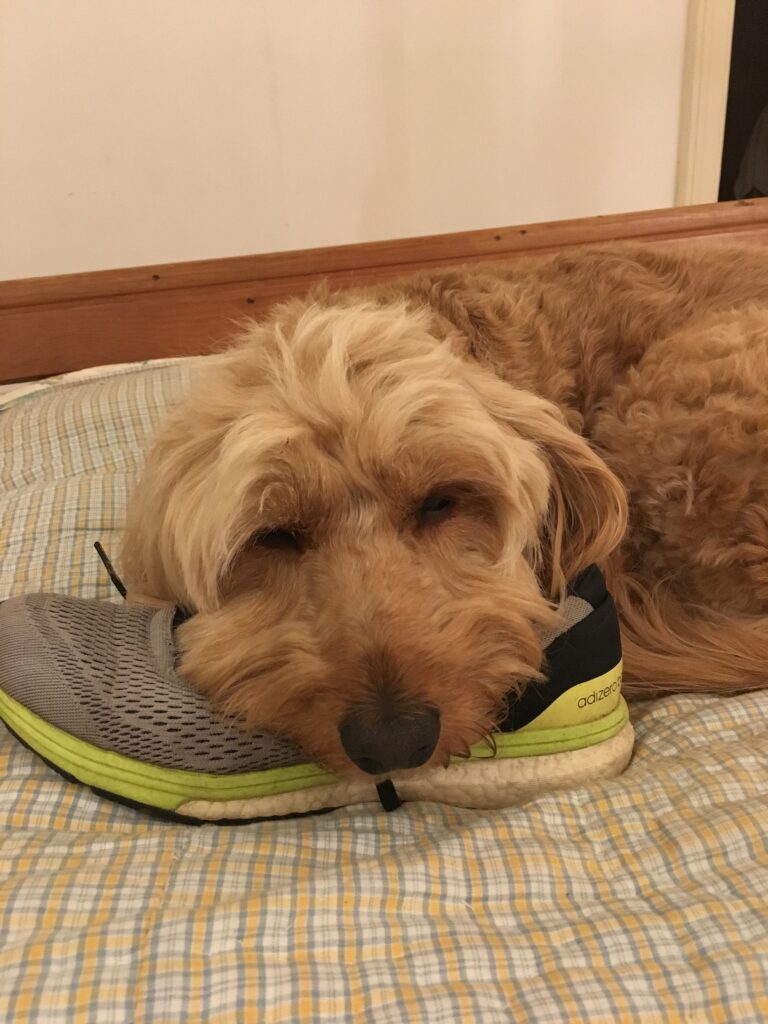
Lack of sleep
Potential symptoms – fatigue, brain fog, poor memory, clumsiness, anxiety
Around 84 per cent of women complain of sleep disturbance due to menopause. Like stress, this is a real chicken and egg thing. The menopause can upset sleep yet lack of sleep can make some symptoms worse. It’s hard, I won’t pretend otherwise! But whatever you can do to maximise your sleep will help. It’s easy to forget the basic tips for a good night’s sleep (routine, a cool room, wind down etc) so revisit the usual list and be honest with yourself as to whether you’re following them.
Tips to address this:
- Avoid caffeine – see the tips above.
- Experiment with when you run. Is an evening run helping or hindering your sleep? – both are possible. Early morning daylight is known to help sleeping at night.
- Are there other causes for your sleep disturbance? Are you overtraining? This can affect your ability to get to sleep and to feel refreshed by sleep too.
- Remember to increase your sleep a bit if you are training hard for an event and increasing your intensity, duration or frequency of runs.
- Stop scrolling! Looking at Strava and Instagram on your phone is guaranteed to affect your ability to sleep.
There are two ways to approach this. Firstly, just go full on and try to reduce and eliminate all of these triggers and see how you feel generally. Secondly, stop or reduce one at a time and get a clearer idea of what your personal triggers are.
Just being aware of what your personal triggers might be and looking at how you can reduce and adapt these is very empowering at time when you can feel as if you have no control.
A life full of menopause symptoms is not a life conducive to good running. I encourage you to look at this list, take a step back and look at your own life. Are there small changes you could make that might make a big difference to how you feel day to day?
Let me know if these triggers affect you and how you’re overcoming them. Don’t forget you can receive my weekly tips to help you cruise through menopause (or at least try to!) when you sign up for my newsletter below.
Featured Image by Erik from Pixabay
Coffee: Image by 13758299 from Pixabay
Stress: Image by Pedro Figueras from Pixabay
Sleep: drjulietmcgrattan.com – My dog can sleep anywhere at the drop of a hat!
